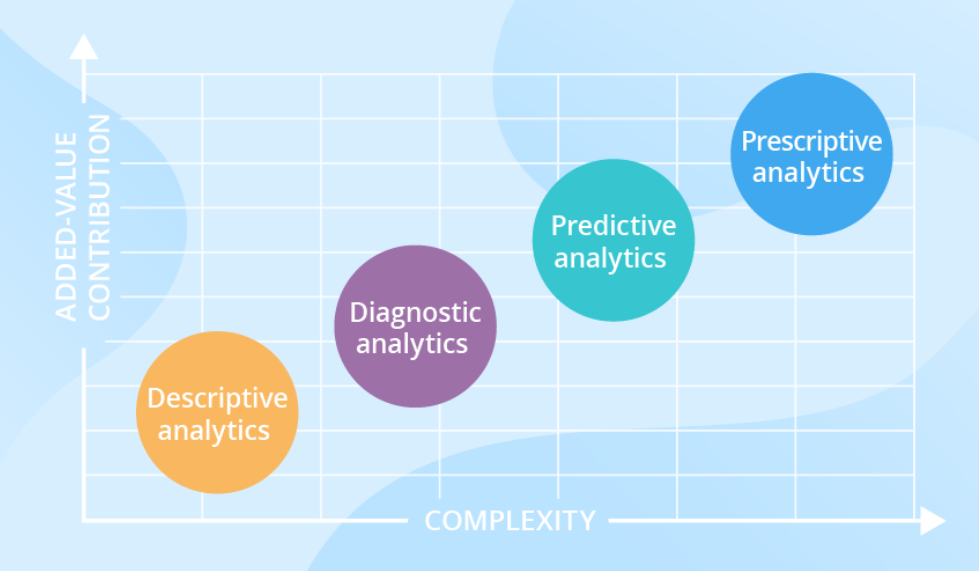Stages of Analytics
 DURGASREE CHOWDHARY KOMMINI
DURGASREE CHOWDHARY KOMMINIThere are four stages of Analytics

- Descriptive Analytics:
This stage involves analyzing historical data to understand what has happened in the past. It focuses on summarizing and visualizing data to provide insights into trends, patterns, and relationships.
Descriptive analytics answers the question, What happened?
Example:
- Descriptive analytics for COVID-19 looks at the numbers: how many cases, how many deaths, and where they're happening.
It's like looking at a map or a graph to see where COVID-19 is spreading and how fast.
- Diagnostic Analytics:
In this stage, analysts investigate why certain events occurred by identifying the root causes behind observed trends or anomalies. It involves deeper exploration of data to uncover underlying factors driving specific outcomes.
Diagnostic analytics answers the question, Why did it happen?
Example:
- Diagnostic analytics tries to figure out why things are happening with COVID-19. For example, why are some areas seeing more cases than others?
Is it because of population density, lack of resources, or something else?
- Predictive Analytics:
Predictive analytics uses historical data and statistical algorithms to forecast future trends, behaviors, or events. By analyzing patterns and relationships in data, predictive models can estimate the likelihood of future outcomes.
Predictive analytics answers the question, What is likely to happen in the future?
Example:
Predictive analytics tries to guess what might happen next with COVID-19 based on what's happened before.
It's like trying to predict if cases will go up or down, or where the next outbreak might occur.
- Prescriptive Analytics:
Prescriptive analytics goes beyond predicting future outcomes to recommend actions or interventions that can optimize results. It leverages advanced algorithms and optimization techniques to identify the best course of action to achieve desired goals.
Prescriptive analytics answers the question, What should we do about it?
Example:
Prescriptive analytics tells us what we should do about COVID-19 based on what we know.
For instance, it might recommend wearing masks, getting vaccinated, or enforcing lockdowns to slow the spread. It's like having a plan of action to deal with the situation.
Subscribe to my newsletter
Read articles from DURGASREE CHOWDHARY KOMMINI directly inside your inbox. Subscribe to the newsletter, and don't miss out.
Written by

DURGASREE CHOWDHARY KOMMINI
DURGASREE CHOWDHARY KOMMINI
Hi there! 👋 I'm DURGASREE CHOWDHARY KOMMINI, a passionate third-year Computer Science Engineering student at KL University with a keen interest in data science. Currently delving into the fascinating world of data science, I'm enthusiastic about leveraging my skills in mathematics, programming, and analytics to unravel insights from complex datasets. With a strong foundation in Python, R, and data science libraries, I'm dedicated to honing my skills through hands-on projects and continuous learning. Excited to explore the endless possibilities of data science and make meaningful contributions to the field. Let's connect and explore the world of data together! 🚀